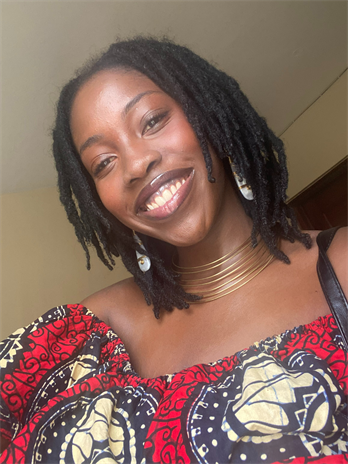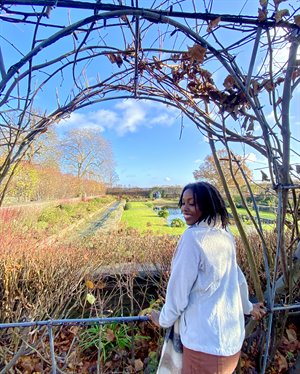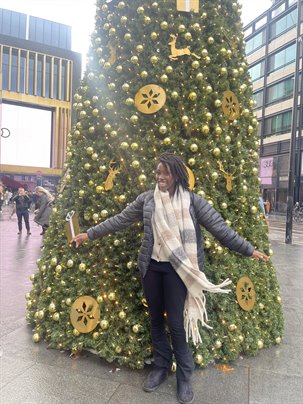Blog: A Kenyan student's journey of identity and connection in the diaspora
Written by Law student Tamasha Mboya.
From Nairobi to the UK
It may sound ironic, but this is the first time I am truly celebrating Black History Month. Growing up in Kenya, blackness as a label was never really something I needed contend with. It was just who we were, the sort of default setting. I never felt the need to define it or even call it into question.
Now as an international student in the UK, I’ve started reflecting on my Kenyan identity, my Blackness, and how these parts of me are evolving in this new environment.

Redefining my Blackness in the diaspora
The concept of blackness was originally so foreign in Kenya that many distanced themselves from it by commonly saying “I’m not black, I’m brown”. Some Kenyans in the diaspora would insist on “I’m not black, I’m African”. Understandably so, as many Kenyans’ source of identity is derived from the rich blend of cultures in the country, rather than race. Coming to the UK, as an ethnic minority I realise that blackness is more than skin colour. It is an experience, history and shared struggle that goes beyond the label.
There is truly an unspoken bond that ties black people together, especially in the diaspora. The knowing looks and glances we exchange in a room, communicating a subtle “I see you” or how casually an older black woman will call me “sister” even though we’ve just met. These small but powerful moments, lead me to believe that no matter how different our backgrounds, we are connected by something much deeper.

In Kenya, and Africa at large, this sense of community is deeply embedded within our societies through concepts such as ujamaa, utu and ubuntu. In Swahili, ujamaa translates to familyhood, emphasising values of togetherness and utu reflecting the ideas of compassion and humanity which aligns with the South African philosophy of ubuntu which means that “I am, because we are”. Blackness has got everything to do with understanding that our strength is in our togetherness. Now in the UK, it is beautiful to watch how these values bond us unknowingly.
Beyond shared values, our deep connection is built on shared struggles. The fight in Kenya was not about race (at least directly) but about gaining independence from colonial rule. This struggle parallels the fight for civil rights in the West for centuries. These shared histories of resistance and resilience create a bond that transcends borders.
My blackness has been shaped by the art that surrounds me. Growing up in Kenya, I appreciated the range of music afforded to me. I could wake up listening to a mixture of soul and rhumba from Sauti Sol or jazzy melodies from Mandisi Dyantis. Alternatively, I could take a trip to Jamaica through Vybz Kartel. Black music carries a rhythm and a message from the soul, it is a reminder of who we are. The words from writers like Chimamanda Ngozi Adichie and Ngúgí wa Thiong’o carry the weight of our histories, struggles and triumphs. They shape our consciousness.

Final thoughts
So, what does Blackness mean to me? It’s not one thing. It’s about realising that beyond our diverse experiences lies a shared humanity that links us all. This Black History Month I am not just looking at the past, I am celebrating the art, values, and people that make up the global black experience and deeply appreciating the joys of being Kenyan, the beauty of African culture and the power of being part of something much larger than myself.
Join us in celebrating Black History Month by checking out our schedule of events.